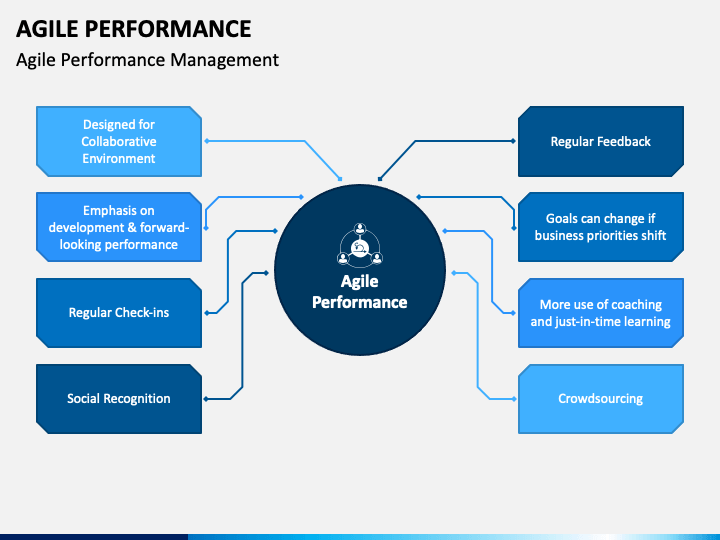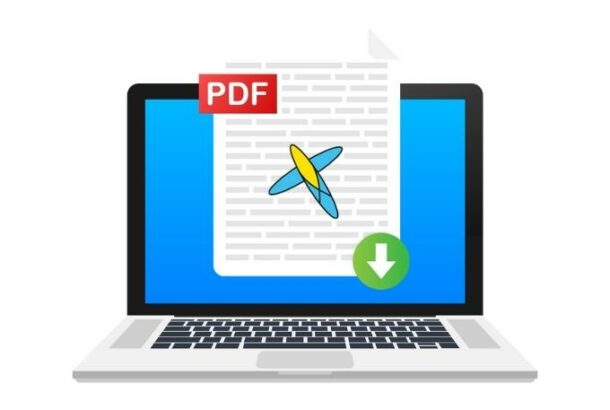In the modern business world, it’s crucial for companies to stay competitive by being adaptable, efficient, and innovative. This is precisely where Enterprise Agile Coaching becomes invaluable. By implementing this transformative approach, businesses can enhance their performance and generate higher revenue in today’s ever-evolving market. In this blog post, we will explore the intricacies of Enterprise Agile Coaching and how it has the potential to expedite business growth.
At its core, Enterprise Agile Coaching aims to incorporate Agile principles throughout an organization. It emphasizes the development of Agile methodologies across all departments and levels, fostering a culture that values flexibility, collaboration, and continuous improvement. By doing so, it ultimately improves business performance and drives revenue growth.
Understanding Agile Methodologies
Agile methodologies are a set of practices designed to improve efficiency and adaptability in project management and software development. Originating in software development, Agile methodologies have been widely adopted across various business sectors due to their success in managing complex projects and promoting adaptability and responsiveness[^1^].
The Agile Manifesto, created by a group of software developers in 2001, serves as the guiding principle for Agile methodologies. It emphasizes:
- Individuals and Interactions over processes and tools
- Working Software over comprehensive documentation
- Customer Collaboration over contract negotiation
- Responding to Change over following a plan[^1^]
By adopting Agile methodologies, businesses can better respond to changes, improve customer satisfaction, enhance project visibility, and reduce risks[^2^].
What is Enterprise Agile Coaching?
Enterprise Agile Coaching involves the application of Agile principles at an organizational level, not just within teams. Unlike Agile Coaching, which is typically limited to specific teams or projects, Enterprise Agile Coaching encompasses the entire organization, including its culture, structure, policies, and leadership.
An Enterprise Agile Coach plays a crucial role in this process, acting as a guide, mentor, and change agent. They help the organization navigate its transformation journey, addressing challenges, and implementing Agile practices in a way that suits the business’s unique needs[^3^].
Enterprise Agile Coaching goes beyond teaching Agile methodologies; it seeks to change the way organizations work by fostering a mindset shift. Through coaching, organizations learn to embrace the principles of agility, such as collaboration, adaptability, and continuous improvement, to achieve business goals effectively.
Why Businesses Need Enterprise Agile Coaching
The business landscape is constantly evolving, with new technologies, market trends, and customer expectations creating a volatile, uncertain, complex, and ambiguous (VUCA) environment. To navigate this landscape, businesses need to be flexible, responsive, and innovative.
Enterprise Agile Coaching helps businesses meet these demands. It enables them to:
- Adapt quickly to market changes: Agile practices allow businesses to respond promptly to shifting market dynamics, ensuring they stay competitive and relevant.
- Improve efficiency and productivity: By streamlining processes and eliminating bottlenecks, Agile Coaching helps businesses optimize their operations and deliver value more effectively.
- Enhance customer satisfaction by delivering value faster: Agile methodologies prioritize the delivery of working products or services, ensuring that customer needs are met promptly and effectively.
- Promote a culture of continuous learning and improvement: Agile principles encourage teams to reflect on their work, identify areas for improvement, and adapt their practices to drive better outcomes[^4^].
For example, a report by the Project Management Institute found that organizations that are highly Agile and responsive to market dynamics complete more of their projects successfully than their counterparts who are less agile[^5^].
Benefits of Enterprise Agile Coaching to Business Performance
Enterprise Agile Coaching can offer numerous benefits that enhance business performance, including:
- Increased Efficiency: Agile practices help businesses streamline their processes, eliminate waste, and deliver more value with less effort. Teams work collaboratively, focusing on the most valuable tasks, which leads to improved productivity.
- Improved Quality: By fostering a culture of continuous improvement, Agile Coaching helps businesses enhance the quality of their products or services. Frequent feedback loops and iterative development cycles enable teams to identify and address issues early, resulting in higher-quality outcomes.
- Higher Customer Satisfaction: Agile businesses are better positioned to meet customer needs and adapt to changing customer preferences, leading to higher customer satisfaction. Regularly delivering value to customers ensures that their expectations are met and exceeded.
- Better Decision Making: Agile Coaching promotes transparency and collaboration, enabling better decision-making. By involving stakeholders throughout the development process, businesses can make informed decisions based on accurate and timely information.
- Increased Revenue: By improving efficiency, quality, customer satisfaction, and decision-making, Agile Coaching ultimately contributes to increased revenue. Satisfied customers are more likely to become repeat customers and refer others to the business[^6^].
Elevating Business Performance through Enterprise Agile Coaching
To leverage the full potential of Enterprise Agile Coaching and elevate business performance, organizations need to follow several key steps:
- Adopting Agile Practices: The first step in elevating business performance through Enterprise Agile Coaching is adopting Agile practices. This may include implementing Scrum, Kanban, Lean, or other Agile frameworks that suit the business’s needs. Agile practices provide teams with the tools to enhance collaboration, transparency, and adaptability.
- Training and Capacity Building: The role of an Enterprise Agile Coach includes training teams and leaders in Agile principles and practices to build their capacity for transformation. This training involves workshops, certifications, and hands-on coaching sessions to provide individuals with the necessary skills and knowledge to effectively apply Agile methodologies in their work.
- Cultural Change: The Agile methodology encompasses not just practices but also a cultural shift. Skilled coaches play a vital role in fostering a collaborative, adaptable, and learning culture within teams. This may involve breaking down barriers between departments, promoting open and effective communication channels, and empowering teams to take ownership of their work. Successfully implementing cultural change requires strong leadership support and a commitment to embracing Agile values organization-wide.
- Structural Change: Coaches may help restructure teams and processes to better align with Agile principles. This could involve adopting cross-functional teams, removing hierarchical barriers, and promoting self-organizing teams. Restructuring ensures that the organization’s structure supports Agile practices and enables effective collaboration.
- Continuous Improvement: Agile is about continuous learning and improvement. Coaches help businesses establish processes for regular reflection and improvement. Retrospectives, feedback loops, and metrics tracking are some techniques used to identify areas for improvement and drive ongoing growth and development[^7^].
By following these steps, businesses can establish a strong foundation for embracing Agile methodologies and unlock their potential for elevating business performance.
Case Study: Success Stories of Enterprise Agile Coaching
Case Study 1: ING Bank
ING Bank, a leading global financial institution, underwent a massive Agile transformation, moving from a traditional hierarchical structure to a “Spotify model” of squads, chapters, and tribes[^8^]. With the help of Agile Coaches, the bank was able to improve its speed to market, increase employee engagement, and enhance customer satisfaction. By embracing Agile practices, ING Bank was able to respond quickly to market changes, deliver innovative products and services, and create a culture of collaboration and continuous improvement[^8^].
Case Study 2: Microsoft
Microsoft’s Developer Division adopted Agile methodologies to improve its software development process. With the help of Agile Coaches, the division was able to reduce its development cycle from three years to three weeks, drastically improving its efficiency and responsiveness. By embracing Agile practices, Microsoft was able to deliver software updates more frequently, respond to customer feedback, and stay ahead of the competition[^9^].
These success stories highlight how Enterprise Agile Coaching can transform organizations, enabling them to overcome challenges, drive innovation, and achieve exceptional business performance.
Conclusion
Enterprise Agile Coaching is a powerful tool for businesses seeking to improve their performance and navigate the VUCA business landscape. By instilling Agile principles at an organizational level, businesses can become more adaptable, efficient, and customer-focused, leading to increased performance and revenue.
If you’re interested in exploring how Enterprise Agile Coaching can benefit your business, schedule a free consultation with Leadership Tribe today.
FAQs about Enterprise Agile Coaching
Here are some frequently asked questions about Enterprise Agile Coaching:
Q: What is Enterprise Agile Coaching? A: Enterprise Agile Coaching is the application of Agile principles at an organizational level, encompassing the entire organization, including its culture, structure, policies, and leadership. It goes beyond Agile Coaching, which typically focuses on specific teams or projects.
Q: How can Enterprise Agile Coaching benefit my business? A: Enterprise Agile Coaching can benefit your business in several ways. It helps improve efficiency and productivity, enhances the quality of products or services, increases customer satisfaction, enables better decision-making, and ultimately contributes to increased revenue. By embracing Agile principles and practices, businesses become more adaptable, customer-focused, and responsive to market changes.
Q: How long does an Agile transformation take? A: The length of an Agile transformation varies depending on the size and complexity of the organization. It can take anywhere from a few months to several years. The transformation process involves cultural change, structural adjustments, training, and continuous improvement.
Q: What is the role of an Enterprise Agile Coach? A: An Enterprise Agile Coach plays a crucial role in guiding organizations through their Agile transformation journey. They act as mentors, change agents, and facilitators. Coaches help teams and leaders understand Agile principles, implement Agile practices effectively, and navigate the challenges that arise during the transformation process. They provide guidance, support, and training to enable successful adoption of Agile methodologies.
Q: Can Agile practices be applied outside of software development? A: Absolutely! While Agile methodologies originated in software development, their principles and practices can be applied to various business sectors. Agile has been successfully implemented in marketing, HR, finance, operations, and other non-IT functions. The key is to adapt Agile practices to suit the specific needs and context of the business.
Q: How does Agile Coaching differ from Enterprise Agile Coaching? A: Agile Coaching typically focuses on specific teams or projects, helping them implement Agile practices and improve their performance. On the other hand, Enterprise Agile Coaching encompasses the entire organization, addressing cultural, structural, and leadership aspects of Agile adoption. It aims to instill Agile principles at an organizational level, facilitating a holistic Agile transformation.
Q: How can Agile practices improve decision-making in organizations? A: Agile practices promote transparency, collaboration, and a focus on delivering value. By involving stakeholders in the decision-making process and providing them with timely and accurate information, Agile enables better decision-making. Short feedback cycles, regular retrospectives, and continuous improvement processes allow organizations to adapt their decisions based on new insights and changing market conditions.
Q: What are some common challenges businesses face during an Agile transformation? A: Agile transformations can pose several challenges, including resistance to change, lack of clarity around Agile principles, inadequate training, cultural resistance, and difficulty aligning Agile practices with existing processes. Enterprise Agile Coaches help organizations address these challenges by providing guidance, training, and support throughout the transformation journey.
Q: How can I get started with Enterprise Agile Coaching for my business? A: To get started with Enterprise Agile Coaching, it is advisable to seek guidance from experienced Agile Coaches or Agile consulting firms like Leadership Tribe. They can provide a tailored approach to your organization’s needs, conduct assessments, and create a roadmap for your Agile transformation. Contact Leadership Tribe for a free consultation to explore how Enterprise Agile Coaching can benefit your business.
Glossary
Agile: A set of practices designed to improve efficiency and adaptability in project management and software development.
Enterprise Agile Coaching: The application of Agile principles at an organizational level, encompassing the entire organization, including its culture, structure, policies, and leadership.
VUCA: An acronym for Volatile, Uncertain, Complex, and Ambiguous, used to describe the challenging business environment many organizations face today.


